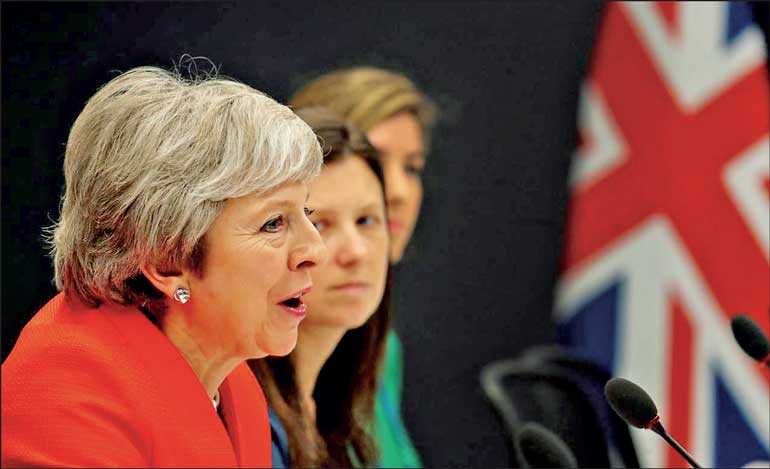Friday Feb 27, 2026
Friday Feb 27, 2026
Wednesday, 5 December 2018 00:00 - - {{hitsCtrl.values.hits}}

LONDON (Reuters) - The European Union’s (EU) top legal adviser said on Tuesday that Britain had the right to withdraw its Brexit notice, opening a new front in a battle over Prime Minister Theresa May’s plans to leave the EU which could be rejected in Parliament next week.
The advice from the European Court of Justice’s (ECJ) advocate general emboldened supporters of EU membership in Britain’s Parliament on the first of five days of debate on May’s plans to keep close economic ties after leaving the bloc in March.
May faces a daunting struggle to secure Parliament’s approval in the key vote on 11 December after her plan was criticised by Brexit supporters and opponents alike.
“The British people want us to get on with a deal that honours the referendum and allows us to come together again as a country, whichever way we voted,” she will tell lawmakers on Tuesday, according to excerpts of her speech.
“This is the deal that delivers for the British people.”
May has long warned lawmakers that if they do not back her deal, they could open the door to Britain falling out of the EU without any measures deal to soften the transition, or that Brexit might not happen.
The advice from the ECJ advocate general - not binding but usually heeded by the court - suggested to some lawmakers that revoking Britain’s ‘Article 50’ divorce notice was an option.
“It’s a false choice to say it’s the PM’s deal or chaos,” said Conservative lawmaker Sam Gyimah, who quit as a minister on Friday over May’s deal. “We should look at all the options and not be boxed in by our own red lines.”
Sterling rose on hopes that the court advice would make a disorderly ‘no-deal’ Brexit next March less likely.
If, against the odds, May wins the vote, Britain will leave the EU on 29 March on terms negotiated with Brussels - its biggest shift in trade and foreign policy for more than 40 years.If she loses, May could call for a second vote on the deal. However, defeat would increase the chances of a ‘no-deal’ exit which could mean chaos for Britain’s economy and businesses, and put May under fierce pressure to resign.
Defeat could also make it more likely that Britain will hold a second referendum on exiting the EU - which would almost certainly require it at least to defer its departure - three years after voting narrowly to leave.
May at the age of 62 has toured Britain, spent hours being grilled in Parliament and invited lawmakers to her Downing Street residence to try to win over her many critics.
The deal however has united critics at both ends of the political spectrum: eurosceptics say it will make Britain a vassal state while EU supporters take a similar line, saying it will have to obey the rules of membership while foregoing the benefits.
Few in the lower house of the House of Commons seemed to have been won over on Monday. Her former Brexit minister David Davis said: “This is not Brexit.”
Opposition parties and her own nominal allies in the Northern Ireland Democratic Unionist Party (DUP) were pressing on Tuesday for her Government to be found in contempt of Parliament for failing to publish in full the legal advice on Brexit that it commissioned.
More than two years after it voted to leave, the testy debates that shaped the referendum have intensified, dividing Britain and unsettling markets, businesses and foreign residents.
May hopes that if she forces her deal through Parliament, firms that have put off investments and made contingency plans for fear of trade drying up will be able to move forward again.She says her deal will maintain close economic ties with the EU while enabling Britain to trade more freely with the rest of the world and meet voters’ demands to reduce immigration.
But the deal has done little more than boost opposition at the hard-line edges of the debate.
Brexit supporters have vowed to defeat it and threatened to bring May down. Pro-EU lawmakers and the DUP, which props up her Government, say they will vote against, and the main opposition Labour Party says it will try to unseat her.
During the five-day debate, the strength of the opposition should become clear when lawmakers make speeches or try to amend, or change May’s motion to approve the deal.
They may try to alter or delay Brexit, or derail it altogether, but her team is sticking to the script.
“This deal... is the best way, I firmly believe, of ensuring that we leave the European Union on 29 March,” Attorney General Geoffrey Cox told Parliament on Monday.
“This is the deal that will ensure that happening in an orderly way, with legal certainty.”